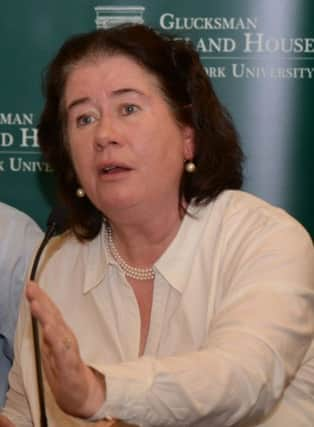All sides in the conflict, without exceptions, violated human rights


Was the British government, for example, a benevolent umpire, keeping two warring sectarian tribes apart?
Or was it an active participant behind the scenes, pulling the strings not only of the police and courts but also the paramilitaries?
Advertisement
Hide AdAdvertisement
Hide AdThis calls into question a News Letter editorial (December 31 2015) urging London to “step in to ensure balance in what is unfolding” which, it predicted, will be a “wave of unlawful killings verdicts against state actors”.
Instead, it proposed an “official history” of the conflict, as suggested by Lord Bew, whom it described as an “advocate of unionism”.
But would a single “official history” be worth more than the paper it’s written on, let alone one written by hand-picked elite appointed in London?
Should we not all be trusted with equal access to the facts, to the hard evidence, as far as is now possible, so we can rigorously analyse the complexity of the conflict?
Advertisement
Hide AdAdvertisement
Hide AdLook at London’s track record on the truth. The 24 villagers shot dead in 1948 by the Scots Guards at Batang Kali in Malaya were officially “communist bandits” – not “wholly innocent men” who “were mercilessly murdered” (to quote Supreme Court judge Lord Kerr in November).
In 2013, after lengthy litigation, the British government paid out £19.9m to 5,228 people who were tortured during the eight-year “Mau Mau” uprising when an estimated 90,000 Kenyans were killed or injured.
Until the second Tribunal of Inquiry into Bloody Sunday, the 14 people killed in January 1972 were officially labelled “nail-bombers” and “gunmen” instead of innocent protesters, as Lord Savile concluded.
In all three cases, only years of campaigning by families - assisted by human rights campaigners – led to egregious wrongs being overturned – wrongs with which officialdom was quite comfortable to live.
Advertisement
Hide AdAdvertisement
Hide AdThe Pat Finucane Centre, for which I work, is an advocate for the truth, whatever it reveals, based on hard evidence. Our research can, and should, be challenged, but – to be taken seriously - only through primary sources. We believe that all sides, without exception, violated human rights. Unionist politicians are half-hearted about the Stormont House Agreement’s proposal on legacy but they also claim that republicans (and the IRA in particular) have more shameful truths to tell than the state, in which case they should welcome an independent process.
There are also republicans with justified misgivings about what might emerge. On every side, there are those hiding nasty truths.
One practical problem raised by unionists is that many of London’s actions are documented in the National Archives, and extensive RUC records still exist, both of which can be examined (some, however, remain closed or deliberately concealed). The IRA and loyalist paramilitary groups, on the other hand, were not known for their archival sophistication.
Witnesses, police, military and paramilitary, have died or have refused to co-operate with, for example, the Police Ombudsman, the Historical Enquiries Team (HET) and the courts.
Evidence has been wilfully destroyed. Memories fade.
Advertisement
Hide AdAdvertisement
Hide AdYes, there are real problems. Which participant in the conflict has so far voluntarily admitted anything illegal or embarrassing?
Difficulties will arise if people refuse to work in good faith with the proposed agreed mechanisms.
But slamming the door on the past is no answer either. We believe the electorate will not forgive those who prevaricate or tell lies.
Despite all the obstacles, truths are emerging (such as the HET’s conclusion, on ballistic evidence, without the IRA’s co-operation, that it was culpable in the Kingsmills massacre) but so far they has been patchy and unfair.
Advertisement
Hide AdAdvertisement
Hide AdWho knows where a truly dynamic, independent mechanism will lead? It might even start a healing process.
Anne Cadwallader is a case worker with The Pat Finucane Centre and author of Lethal Allies: British Collusion in Ireland